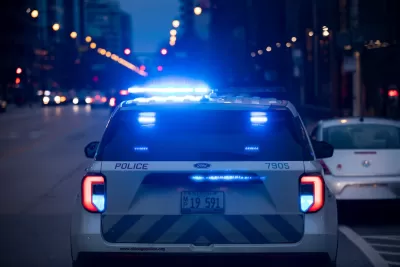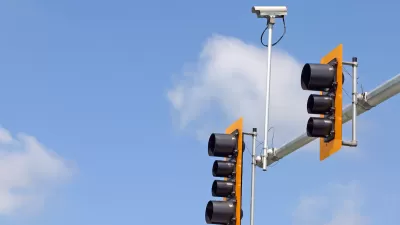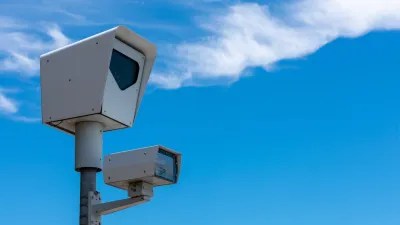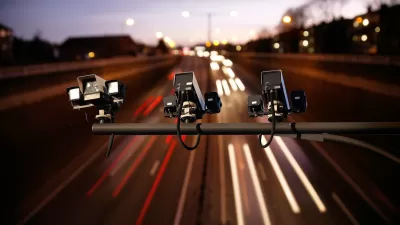The city’s automated traffic enforcement cameras are issuing tickets at rates more aligned with the community’s racial makeup — unlike human police officers, according to a new analysis.

A study of Chicago’s controversial speed cameras indicates that they issue citations more equitably than human police officers. “Cameras can detect dangerous moving violations, such as serious speeding and running red lights, without the need for immediate police involvement. Automated enforcement alone won’t guarantee safe streets, but cameras have reduced fatal and serious injury crashes substantially where deployed, including in Chicago.”
Research by Wenfei Xu, David Levinson, Michael J. Smart, and Nebiyou Yonas Tilahun reveals that “when speed cameras are doing the ticketing, the proportion of tickets issued to Black and white drivers aligns closely with their respective share of roadway users. With human enforcement, in contrast, police officers stop Black drivers at a rate that far outstrips their presence on the road.” In areas of Chicago where half of drivers are Black, they account for 70 percent of police stops.
Using automated traffic enforcement can be one step toward more equitable policing. In Illinois, lawmakers are proposing to ban traffic stops “solely based on noncriminal and minor offenses such as improper vehicle registration, seat belt violations or lane usage mistakes,” while Berkeley is considering the use of trained civilians for routine traffic enforcement — similar to parking enforcement in most cities — to reduce the risk of interactions with armed law enforcement.
FULL STORY: Police stop more Black drivers, while speed cameras issue unbiased tickets − new study from Chicago

Trump Administration Could Effectively End Housing Voucher Program
Federal officials are eyeing major cuts to the Section 8 program that helps millions of low-income households pay rent.

Planetizen Federal Action Tracker
A weekly monitor of how Trump’s orders and actions are impacting planners and planning in America.

Ken Jennings Launches Transit Web Series
The Jeopardy champ wants you to ride public transit.

Sacramento Plans ‘Quick-Build’ Road Safety Projects
The city wants to accelerate small-scale safety improvements that use low-cost equipment to make an impact at dangerous intersections.

How Project Connect Would Change ‘The Drag’
A popular — and sometimes deadly — Austin road will exchange car lanes for light rail.

Milwaukee Road to Get Complete Streets Upgrades
The city will reduce vehicle lanes and build a protected multi-use trail including bioswales and other water retention features on its ‘secret highway.’
Urban Design for Planners 1: Software Tools
This six-course series explores essential urban design concepts using open source software and equips planners with the tools they need to participate fully in the urban design process.
Planning for Universal Design
Learn the tools for implementing Universal Design in planning regulations.
Ada County Highway District
Clanton & Associates, Inc.
Jessamine County Fiscal Court
Institute for Housing and Urban Development Studies (IHS)
City of Grandview
Harvard GSD Executive Education
Toledo-Lucas County Plan Commissions
Salt Lake City
NYU Wagner Graduate School of Public Service





























